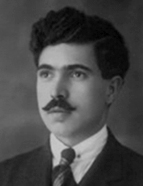

Finally, in 1929, he saw the publication of the work he had set his heart on in his youth, and for which he had spent twelve years collecting and arranging his research data — O livro do Alportel. The initial aim of studying the local dialect had broadened into a study of its ethnography and local history, as a result of the historical, social and economic contextualization that he added to it. He submitted it for a Concurso de Monografias [Monograph Competition] and was awarded the prize for the best monograph on a region of Portugal. O livro de Alportel was reviewed by Prista Monteiro, who considered it “an exceptional text within the whole bibliography of the Algarve” (p. 259). He stressed particularly that in Estanco Louro’s work “the method of observation and analysis, in ethnography, shows a rigour in its precision and sincerity, where personal and scientific values coincide, simultaneously revealing ethnography as an instrument of field work and ethnography as something more than a simple investigation into a place” (p. 265). O livro do Alportel is composed of various thematic books collected in a single volume, elaborating in each book the geography, history, economy, demography, speech, knowledge and traditions of the foothills of the leeward Algarve. According to Prista Monteiro, “O livro do Alportel attempts to tackle, across the whole timeframe, all relevant local knowledge which can assist the political decision-making for the region’s future” (p. 267). Also in 1929, he applied for a doctoral degree on the strength of O livro do Alportel. However, after he had presented his book and defended it before the jury, his examination was suspended, and he was left in an academic “limbo”, making it impossible for him to apply for the Chair of Camonian Studies.
From that time on he abandoned the academic world and dedicated the next twenty years to his life’s work on the ethnography and linguistics of the Algarve, with the following titles: Subsídios para o estudo da fala popular algarvia; Toponímia algarvia; Linguística I: geografia linguística e dialectologia comparada; Linguística II: os factos linguísticos; and Etnografia Algarvia. In the prefaces to O livro de Alportel and Os Lusíadas e o povo português: no vocabulário were to be found his motives for a “new look” at the existing classification of dialects, and for a differentiation between regionalisms and archaisms, which he explains as follows: “When we started to read Os Lusíadas, around 1910, every now and then, here and there, we found a word written just as it was pronounced by the rough and impoverished people of the volcanic mountains of the leeward Algarve, just as it was pronounced in my childhood. The fact impressed me greatly” (p. 3). In O livro de Alportel he adds: “There lives there the greater part of the dead language of the sixteenth and pre-sixteenth centuries. We do not wish to advocate here the literary adoption of a dialectical speech. We merely wish to note that we should do away at once with the general designation of ‘archaisms’ for the many words and ways of speaking which still have, for many people, a vigorous life” (p. 211).
